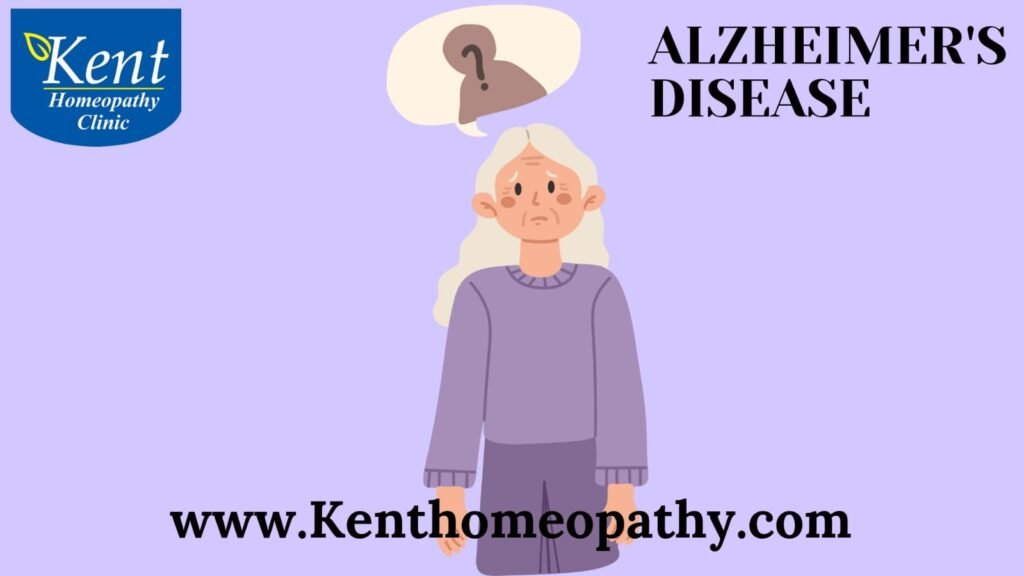Alzheimer’s disease

Alzheimer’s Disease: Unraveling Symptoms, Causes, and Types
Alzheimer’s disease is a progressive neurodegenerative disorder characterized by cognitive decline, memory loss, and changes in behavior. It is the most common cause of dementia, accounting for a significant portion of age-related cognitive impairment.
Symptoms:
- Memory Loss: One of the earliest and most prominent symptoms is difficulty remembering recently learned information.
- Cognitive Decline: Individuals with Alzheimer’s experience a decline in cognitive functions, affecting reasoning, problem-solving, and decision-making.
- Language Impairment: Difficulty finding the right words, following or joining a conversation, and repeating statements or questions.
- Disorientation: Confusion about time, place, and events, leading to getting lost in familiar surroundings.
- Impaired Judgment: Individuals may make poor decisions, exhibit changes in personal hygiene, and show a lack of insight into their condition.
- Personality Changes: Shifts in mood, increased irritability, anxiety, and withdrawal from social activities.
- Difficulty Performing Familiar Tasks: Challenges in completing routine tasks, such as cooking or handling finances.
- Loss of Initiative: A decline in the ability to initiate and plan activities.
Causes:
- Amyloid Plaques and Tau Tangles: Alzheimer’s is characterized by the accumulation of abnormal protein aggregates in the brain. Amyloid plaques (clumps of beta-amyloid protein) and tau tangles (twisted strands of tau protein) disrupt normal cellular function and communication between nerve cells.
- Genetic Factors: Some cases of Alzheimer’s have a genetic component, with certain genes associated with an increased risk. However, genetic factors are not the sole determinant, and environmental influences also play a role.
- Age: Advanced age is a significant risk factor, with the prevalence of Alzheimer’s increasing with age.
- Family History: Individuals with a family history of Alzheimer’s may have a higher risk of developing the condition.
- Down Syndrome: People with Down syndrome are at an increased risk of developing Alzheimer’s, often at an earlier age.
- Cardiovascular Health: Conditions that affect cardiovascular health, such as high blood pressure, high cholesterol, and diabetes, may increase the risk of Alzheimer’s.
Types of Alzheimer’s:
- Early-Onset Alzheimer’s Disease: Occurs before the age of 65, with symptoms typically appearing in a person’s 40s or 50s. This form is often associated with genetic factors.
- Late-Onset Alzheimer’s Disease: The more common form, typically occurring after the age of 65. While age is the greatest risk factor, genetic and environmental factors also contribute.
- Familial Alzheimer’s Disease (FAD): Rare genetic form where mutations in specific genes significantly increase the risk of developing Alzheimer’s. FAD often leads to early-onset Alzheimer’s.
- Sporadic Alzheimer’s Disease: The most common form, where the exact cause is unknown. It develops without a clear genetic predisposition and may involve a combination of genetic, environmental, and lifestyle factors.
Prognosis:
– Alzheimer’s disease is progressive, and there is currently no cure. The rate of progression varies among individuals.
– The course of the disease can span several years, with individuals eventually experiencing severe cognitive impairment and functional decline.
In conclusion, Alzheimer’s disease poses significant challenges to individuals, families, and caregivers. Understanding its symptoms, causes, and types is crucial for early diagnosis, intervention, and ongoing research efforts to improve treatment options and enhance the overall care for those affected.
Contact to know more
Contact
Timings
Monday to Saturday:
11:00 AM to 02:30 PM
06:30 PM to 09:00 PM
